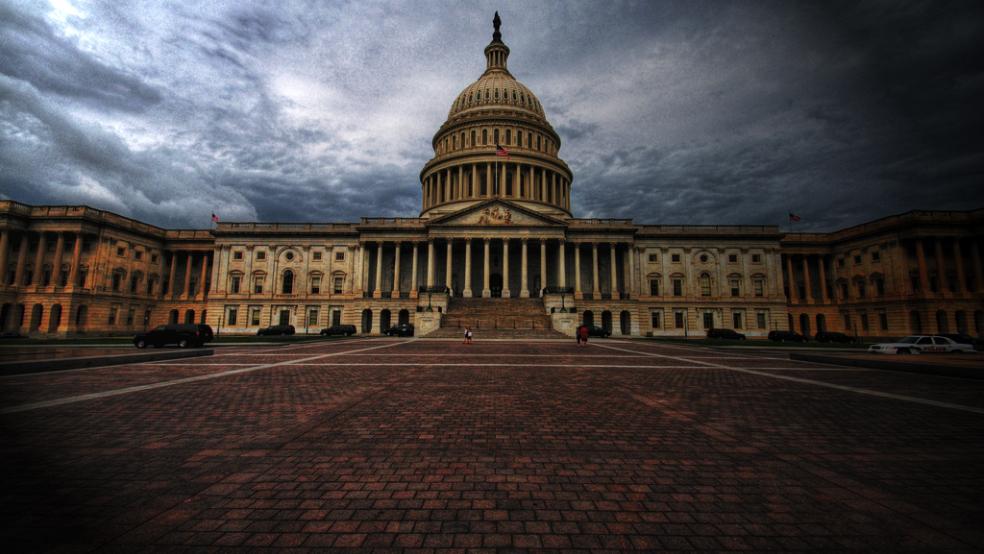President Obama got another cold shoulder from key senators on Wednesday in his quest for new congressional war powers authority to wage the U.S.-led campaign against ISIS in Syria and Iraq.
Republicans say the president hasn’t asked for sufficient authority to destroy the powerful jihadist group, while many Democrats fear being drawn into another open-ended war in the Middle East. Secretary of State John Kerry and Defense Secretary Ashton Carter were both rebuffed by members of the Senate Foreign Relations Committee as they urged Congress to rally around the president.
Related: One Little Word That Could Kill Obama’s War Powers Request
Kerry told the committee that strong congressional backing of the war powers request would “send an unmistakable message to the leaders of ISIL . . . that they cannot divide us.”
“A clear and careful expression of this Congress’ backing at this point and time would expel doubt that might exist anywhere that Americans are united in this effort,” he said.
Kerry argued that Obama as commander-in-chief is seeking “carefully delineated and defined authority” to wage airstrikes and other military action against ISIS wherever needed. Obama first announced a stepped-up allied military assault on ISIS. He changed his mind after the Democrats lost the Nov. 4 election and agreed to submit a formal request for powers.
However, Kerry, Carter and Army Gen. Martin Dempsey, the chair of the Joint Chiefs of Staff, were greeted with sharp skepticism from both sides of the aisle.
Related: Rubio Suggests Obama Is Letting Iran Dictate US War Policy
Committee Chair Bob Corker (R-TN), who favors a more robust assault on ISIS than the current U.S.-led airstrikes training of friendly militias and rebel groups, said he and his GOP colleagues were unimpressed with the president’s strategy and feared it was a recipe for failure.
He added, “We don’t know of a single Democrat that supports that authorization for use of military force.”
Sen. Robert Menendez of N.J., the ranking Democrat on the committee, shares his Democratic colleagues’ reluctance to approve another long-term ground war in the Middle East like the conflicts in Afghanistan and Iraq. He told administration officials his party would not give Obama a “blank check” or “an open-ended authorization for war.”
Menendez, who is under investigation by the Justice Department for alleged corrupt practices, opposed the 2002 congressional authorization for President George W. Bush to invade Iraq. Menendez said he came to regret backing the 2001 authorization to wage war against al-Qaeda terrorists in Afghanistan after 9/11.
Related: Menendez Charges Put New Strain on Obama Relations
Before he would consider signing off on Obama’s latest request for authorization to wage war in Syria and Iraq, Menendez said, “We need to know how long we expect to be there and what our exit strategy will be -- what metrics will indicate success.”
The proposed war powers legislation would impose a three-year limit on American action that has been conducted largely from the air and allow Special Operations endeavors and other limited missions. However, it would rule out sustained large-scale ground combat. It would also finally repeal the expansive 2002 congressional measure authorizing the Bush administration’s war in Iraq.
The proposed three-year expiration date for the authority and the prohibition against the “enduring” use of U.S. ground combat troops are sticking points with the Republicans. Democrats, meanwhile, complain that the language is flexible enough for Obama or a future president to lead the country deeper into a Middle East quagmire.
Sen. Tim Kaine (D-VA) complained during the hearing, “I see a real danger of a ground-troop creep here.”
Top Reads from The Fiscal Times:





